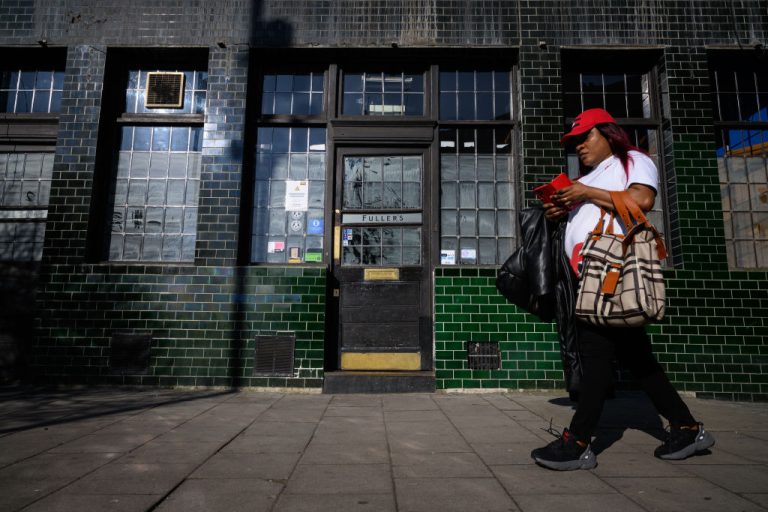The United Kingdom’s iconic public houses are vanishing at a faster rate in the first three months of 2023 than during the aftermath of Coronavirus Disease 2019 (COVID-19) lockdown mandates and work from home edicts, new industry analysis states.
The Guardian broke the news on April 11 based on calculations shared with the outlet by Altus Group, a commercial real estate analytics firm, which found that 150 pubs had closed in the first quarter of 2023 nationwide.
Altus Group calculated that in total, 51 pubs per month have been lost in the beginning of 2023, a figure significantly increased from 32 per month averaged in 2022.
Nonetheless, the UK still has a lot of pubs: 39,634 nationally, according to the outlet.
In May of 2021 reporting by UK media outlet The Northern Echo, Altus Group UK President of Expert Services, Robert Hayton, stated, “Pubs have endured a torrid time during the pandemic but have proved remarkably resilient,” a strength Hayton attributed to, “Government interventions such as furlough, grants, rates relief and liquidity in the form of cheap loans.”
MORE ON RECESSION
- Small Businesses Going Bankrupt 73% Faster Than Beginning of COVID Crisis
- More Canadian Women Aged 55 to 64 Enter the Workforce
- Consumers Still Hot For Fruits and Vegetables Despite Economic Pressures
Success
You are now signed up for our newsletter
Success
Check your email to complete sign up
However, the good times did not last. The Guardian attributed the sector’s escalating rates of demise in 2023 to “soaring energy bills and other costs” that have “pushed many operators over the edge,” a problem anticipated to exacerbate following a reduction of a centrally planned energy bill mitigation package that came into effect starting April 1.
Jan. 23 reporting on the reduced package also by The Guardian quoted Exchequer Secretary to the Treasury James Cartlidge as stating that, “It is not for the government to habitually pay the bills of businesses.”
Cartilage was paraphrased as lauding the new scheme, which involves discounting electricity and natural gas rates, as providing “the equivalent to a £2,300 saving for a pub, or £400 for a typical small retail store.”
Previously, “The Treasury funded a discount on non-domestic customers’ bills, covering the difference between wholesale prices and a ‘government-supported price’ of £211 a MWh for electricity and £75 a MWh for gas” during the period of October of 2022 to March 31, The Guardian explained.
Under the new program, “A discount of £6.97 a megawatt hour for gas and £19.61 a MWh for electricity” will be provided, but only for businesses paying more than “£107 a MWh for gas and £302 a MWh for electricity.”
Putting it into perspective, the April 11 article paraphrased an Essex-area pub owner who is shuttering the doors of their 150-year-old business at the end of April as stating the monthly “gas and electricity bills almost tripled from £13,000 a year to £37,000 a year.”
He explained that the “January gas bill alone was more than £2,100 compared with £460 for the same month a year earlier,” The Guardian paraphrased.
The owner told The Guardian that although, “Initially we were very upset,” closing the business has, “Turned into relief now.”
“It’s got to a point where it’s become unprofitable, and for the last few months we have been unable to pay ourselves a wage, meaning we have been working for nothing. We just can’t carry on with these bills,” the man added.
A November of 2022 article by the Reuters wire service paraphrased a London-area suburban pub owner as stating that the energy bill alone “is on course to more than quadruple this year to 65,000 pounds ($76,000) from 16,000 pounds.”
A spokesperson for the pub stated, “We need to come up with an extra 50,000 pounds in profits each year, at the same time that profits are coming to a standstill as consumers see their own prices rise at home.”
Another pub owner interviewed by the outlet stated that not only are costs up, but consumer spending is down, “I’ve seen three of our regulars in a single day choosing tap water over a pint to go with their lunch…I’d maybe seen that only once a month before this.”
The writing may have been on the wall for some time. In November of 2022, the UK government slashed the valuation of pubs, a figure used to calculate property taxes, by 17 percent, according to website London Loves Business.
However, Hayton was quoted as stating that although “pubs are big winners under both the Autumn Statement and 2023 revaluation,” the industry still received the proverbial short end of the stick because “at the assessment date pubs were effectively closed and trade had been severely impacted by coronavirus restrictions for over a year.”
“Our view is that the market on the valuation date was far worse than these new values suggest. Many ratepayers, especially those large operators precluded from the relief scheme, will now want to consider challenging their future rateable values,” Hayton added.
Industry sentiment is commensurately poor. According to a survey by the British Beer and Pub Association, 35 percent of members who responded said they expected to be insolvent or operating at a loss by the end of 2023.
96 percent of takers stated they were suffering from expanded energy costs and 93 percent from food inflation.
These factors both combined with 77 percent of member respondents stating their businesses were seeing less customers coming through the door. 85 percent said they expected the trend to continue to worsen.















